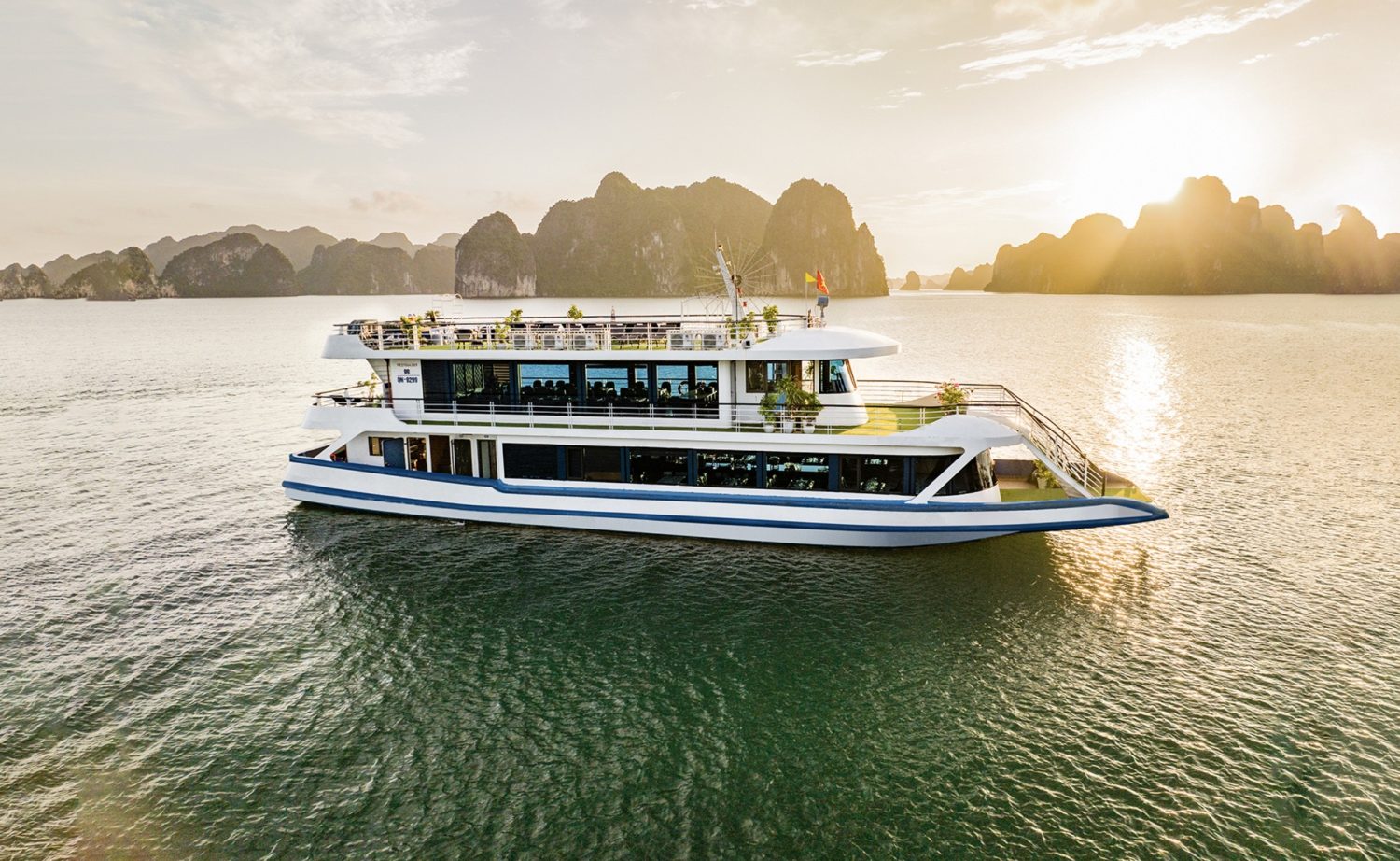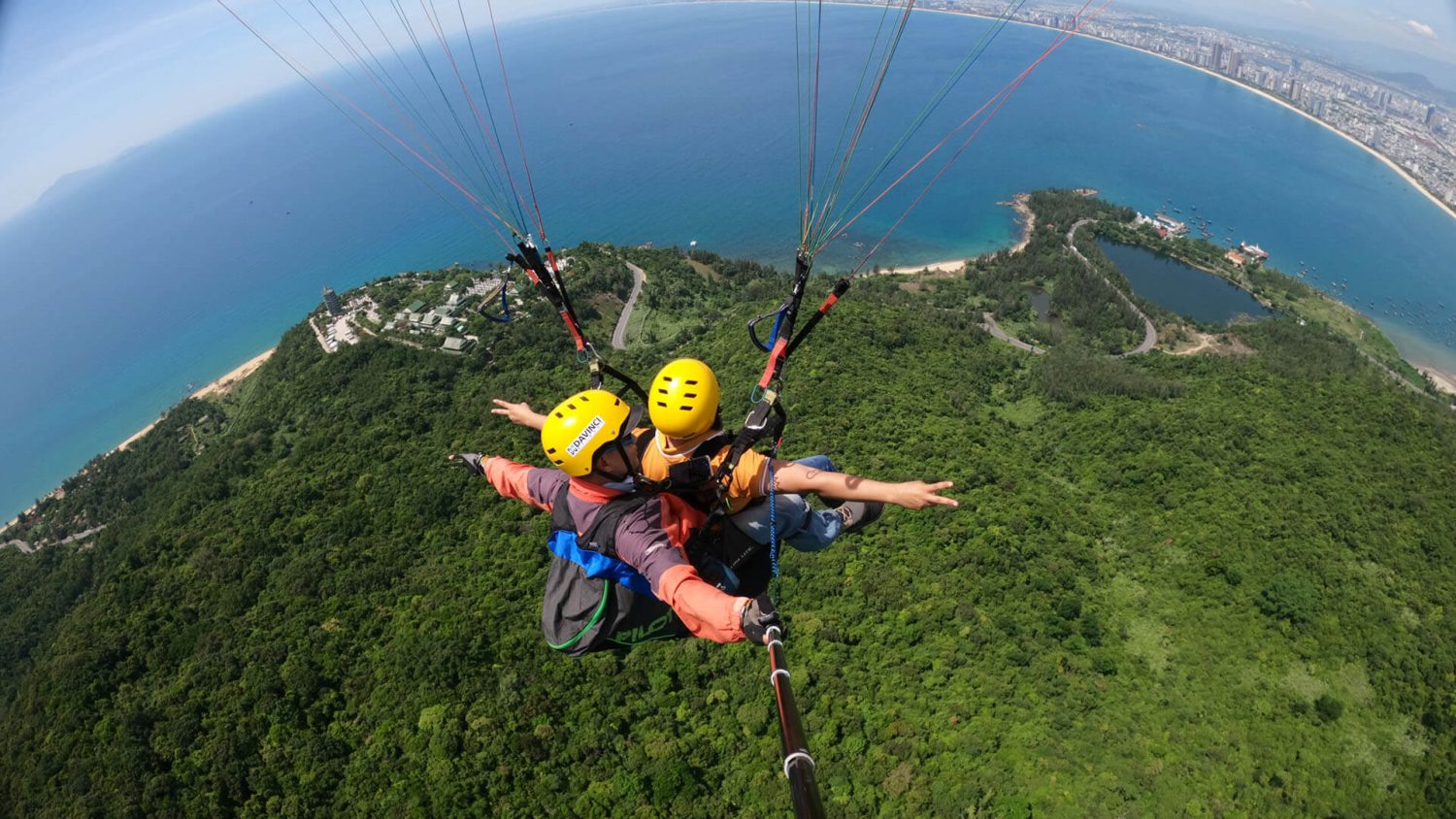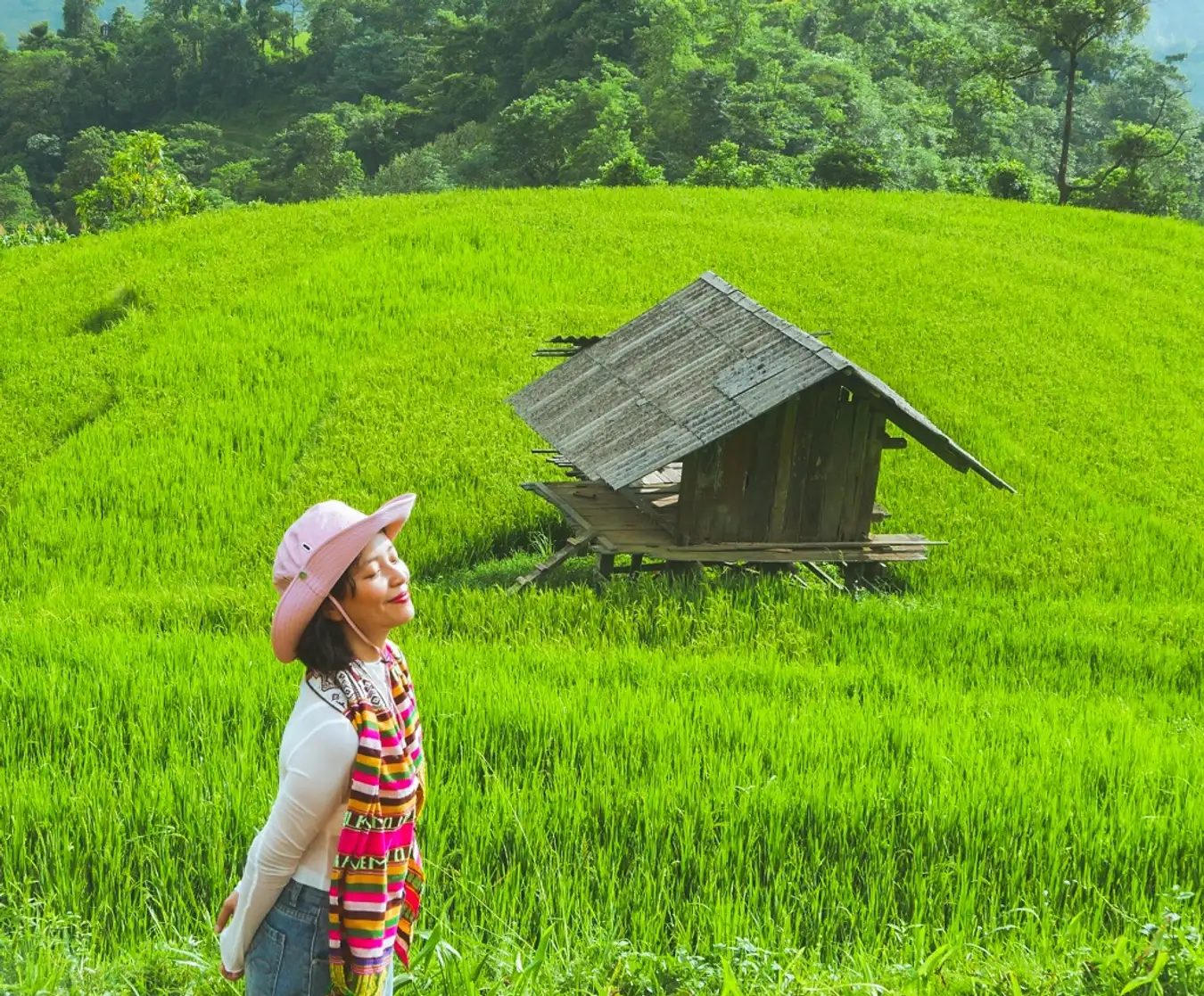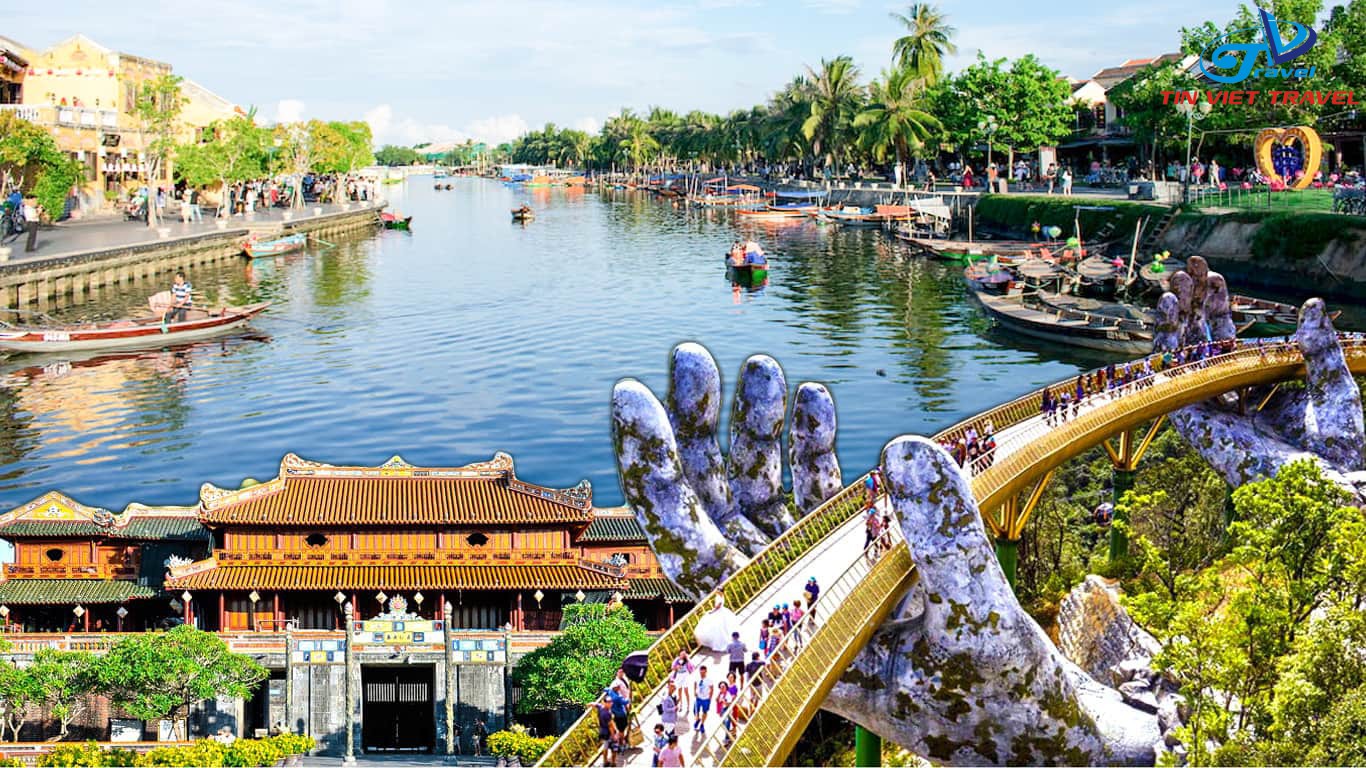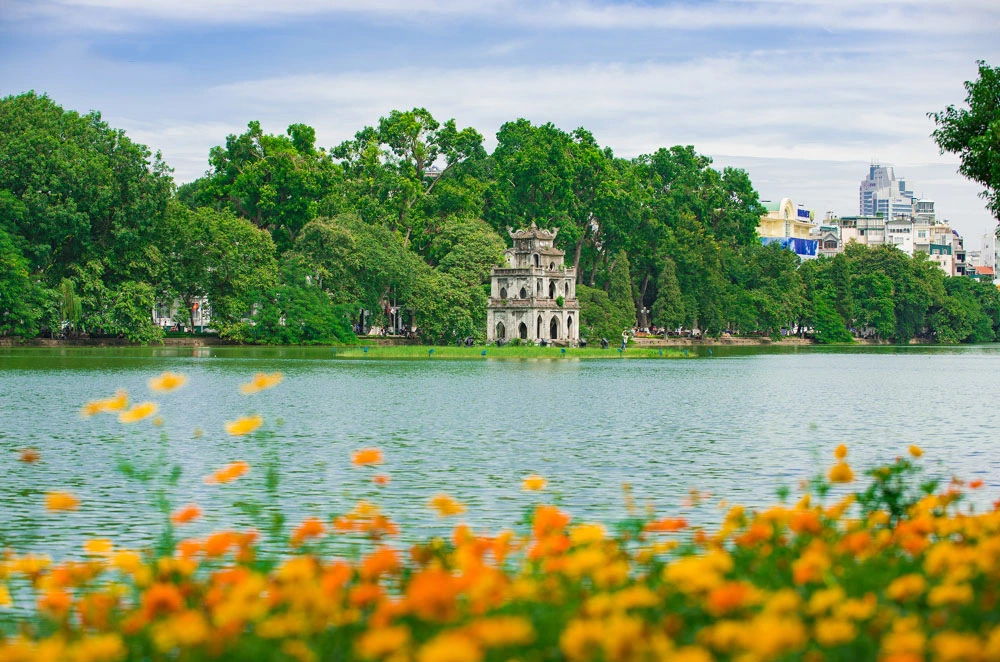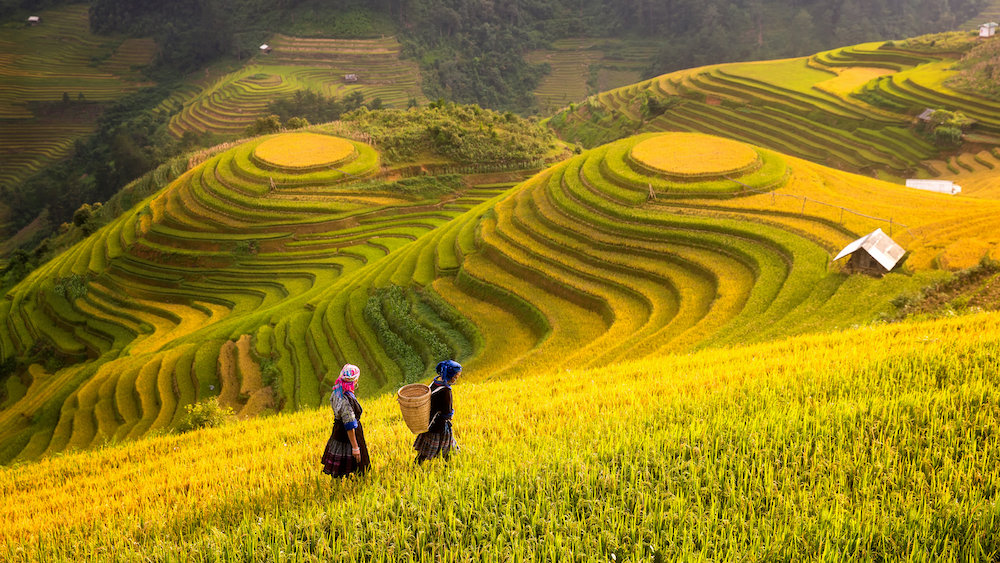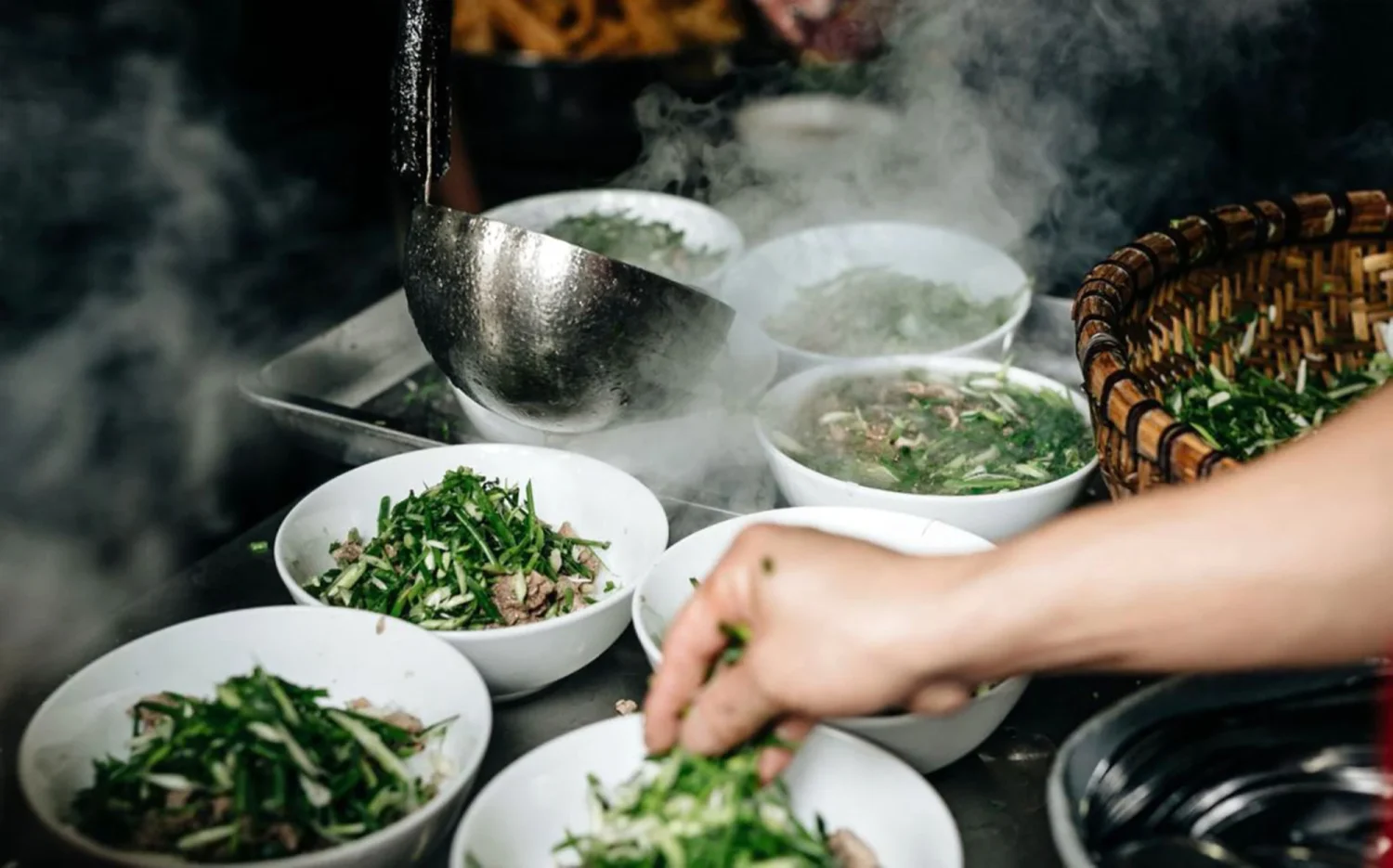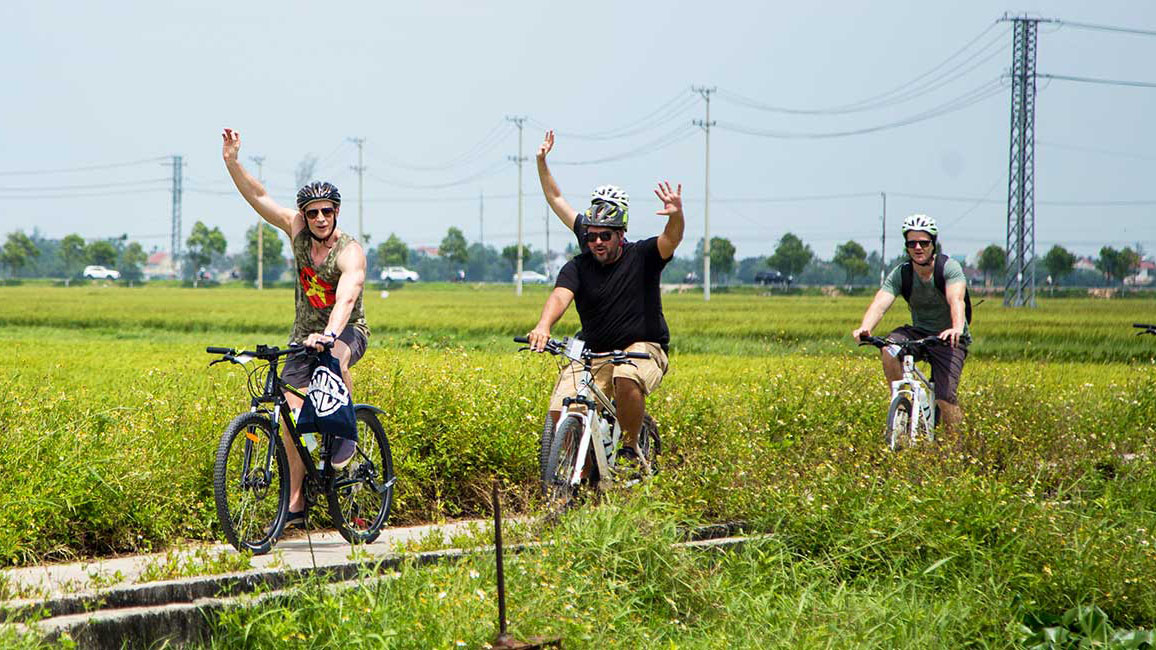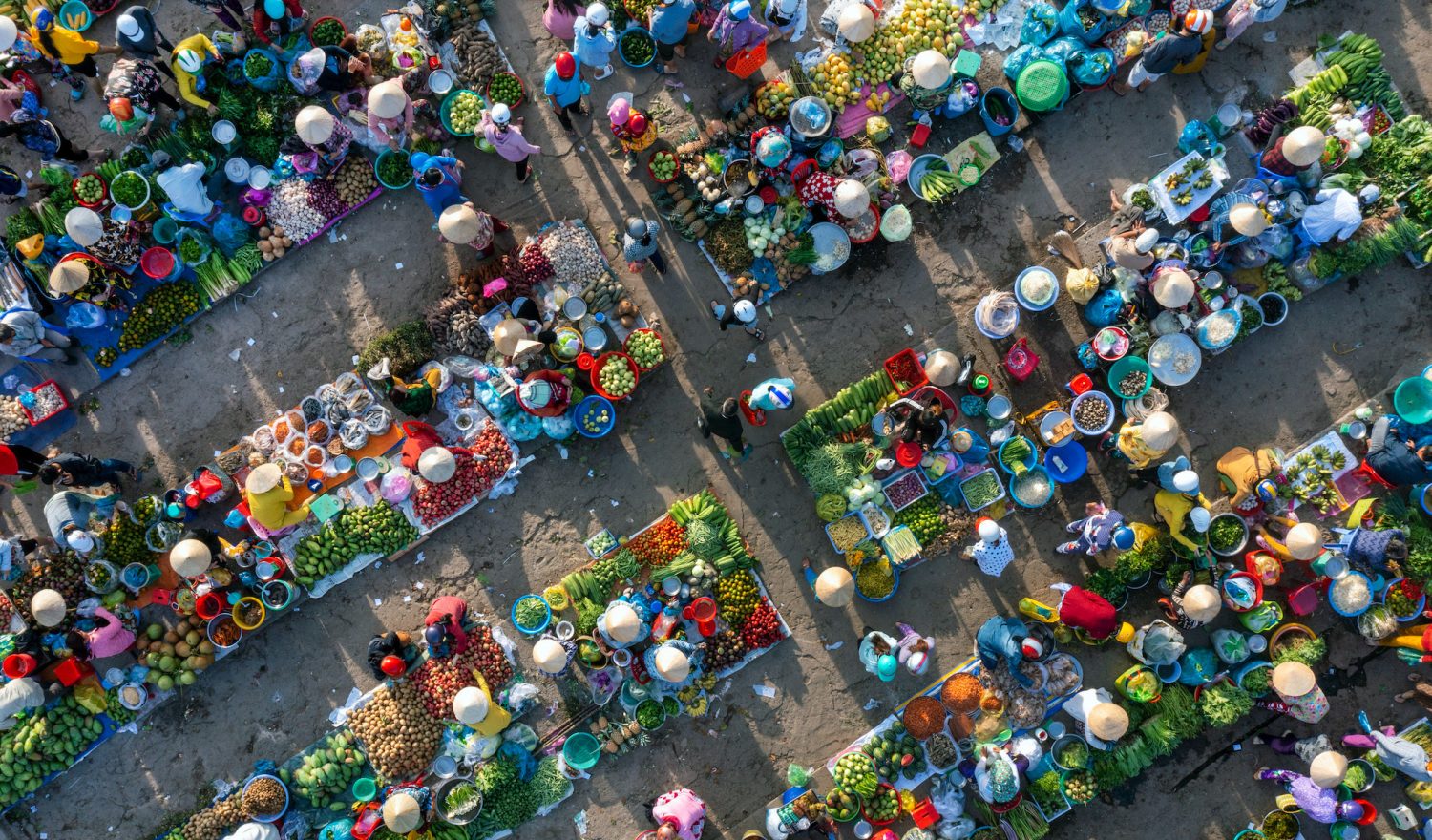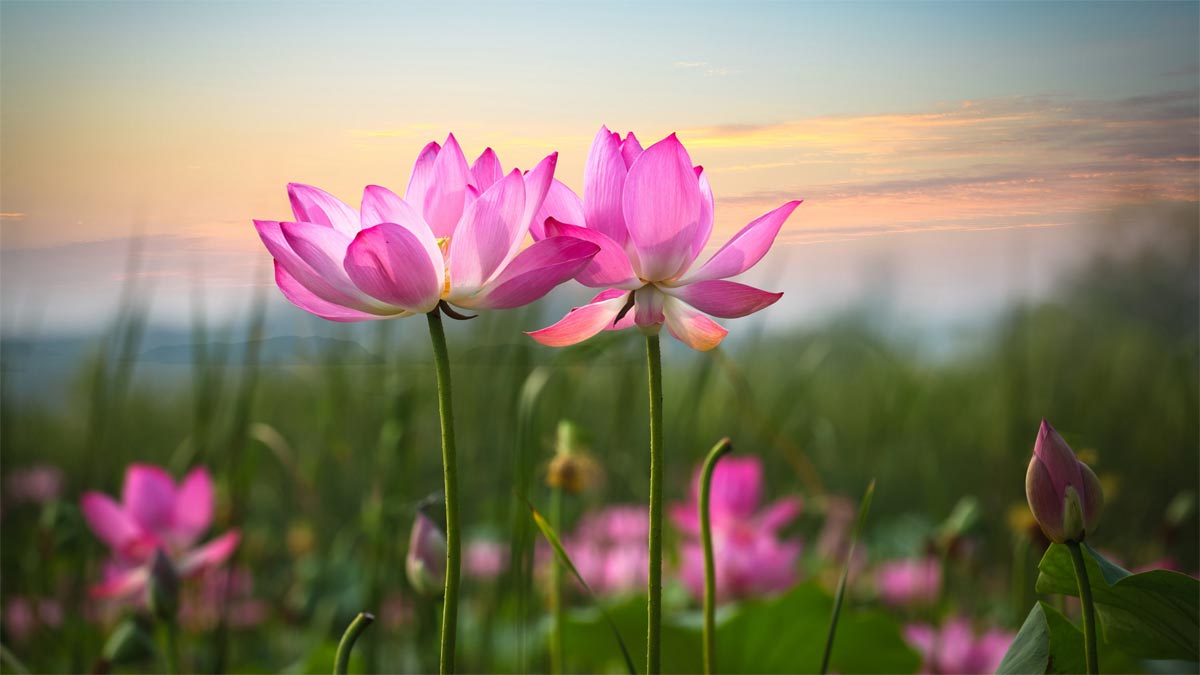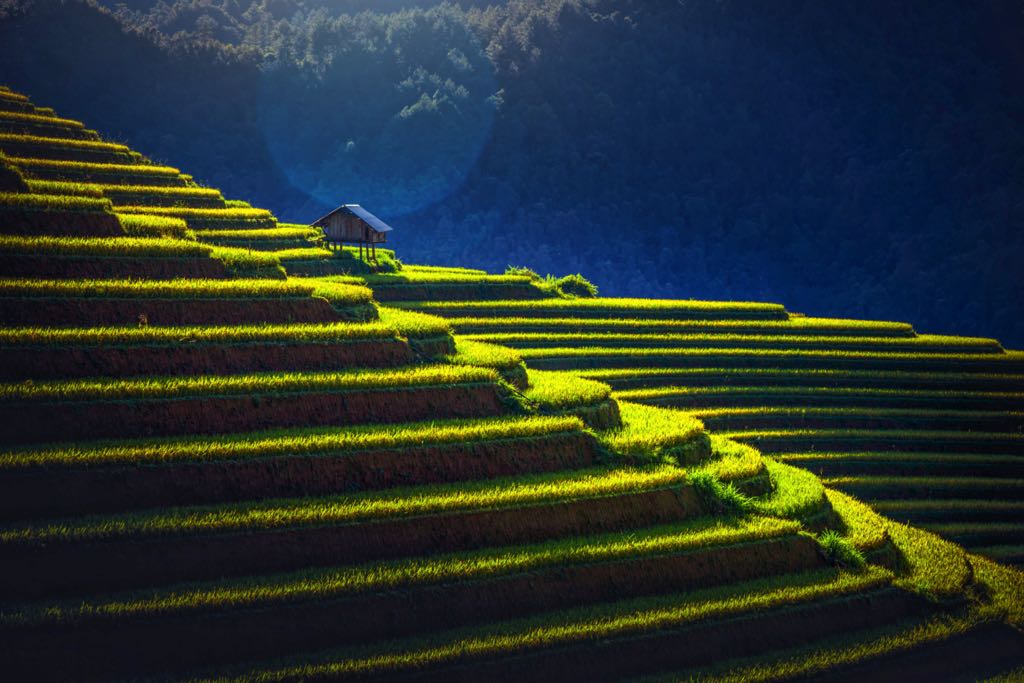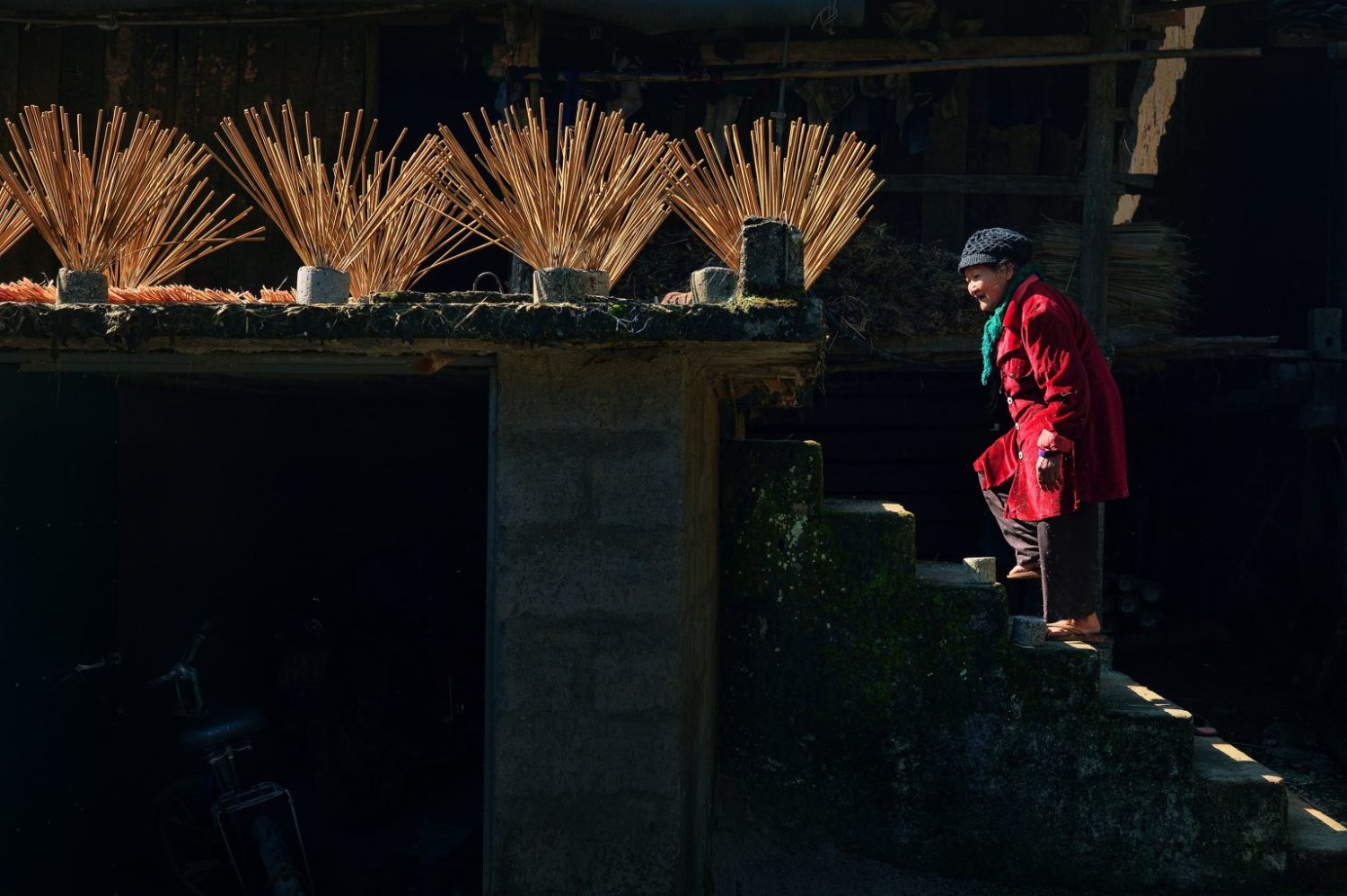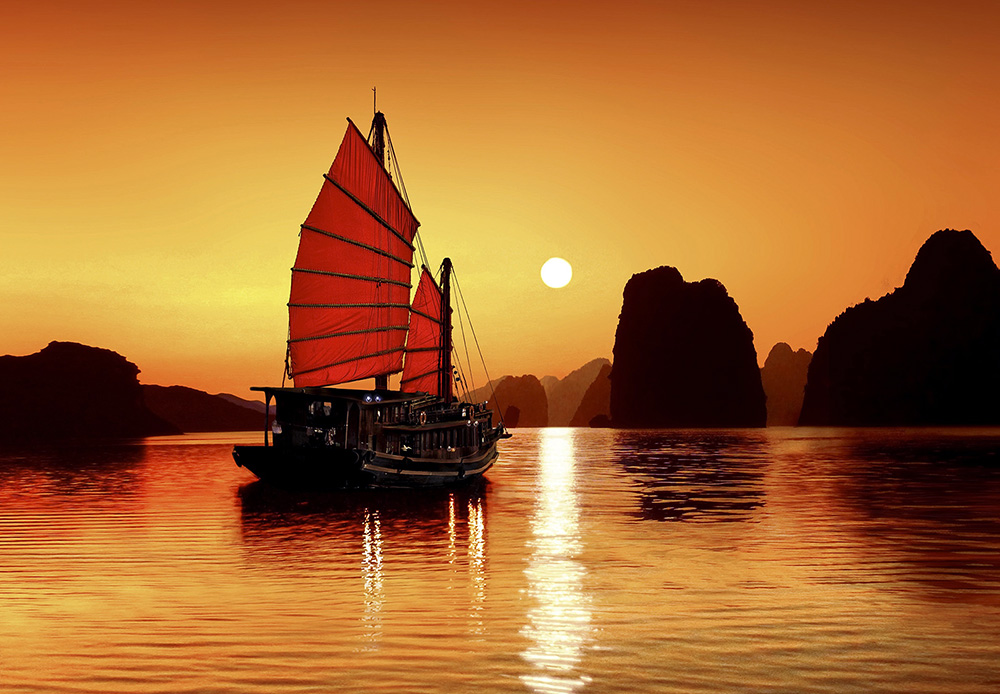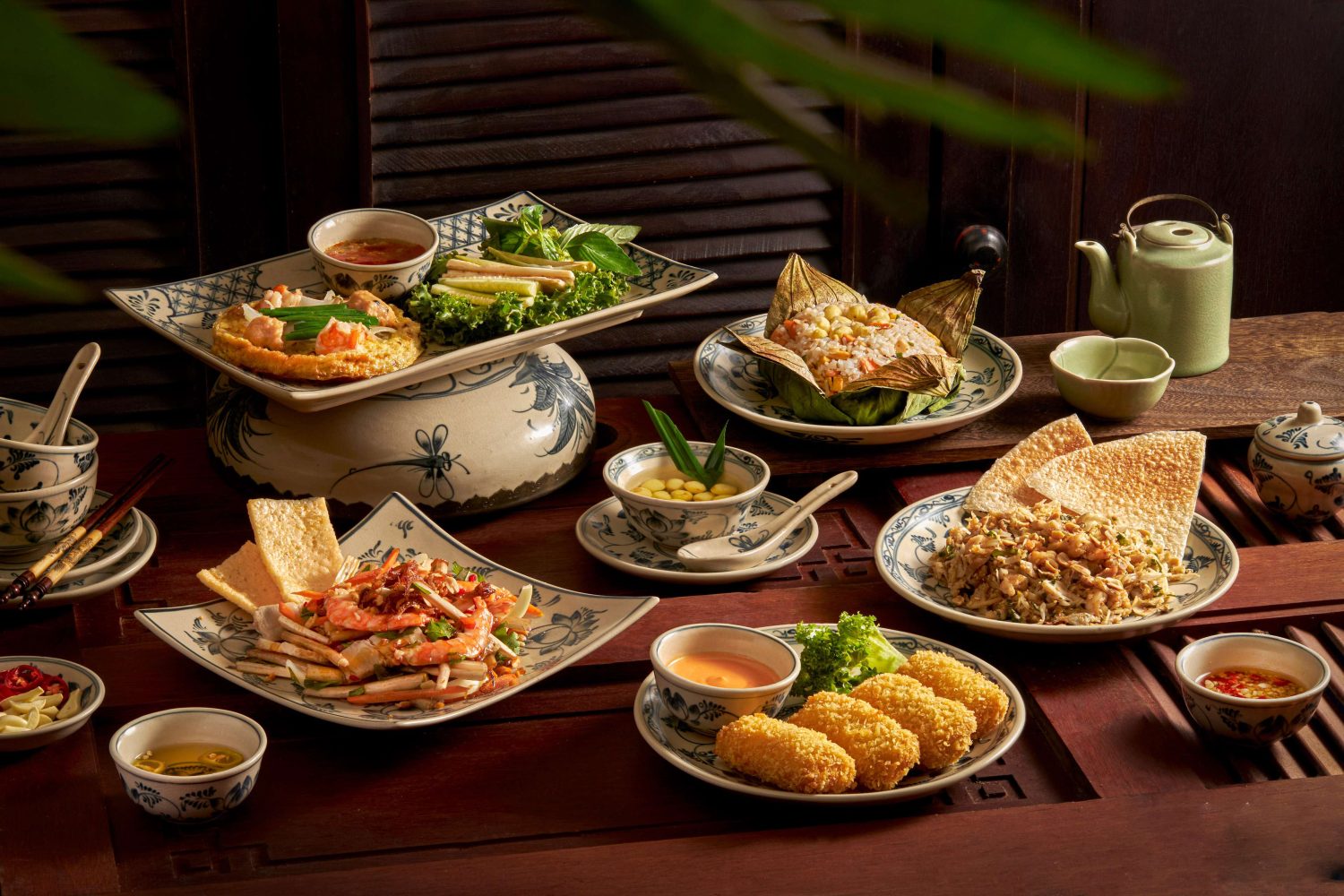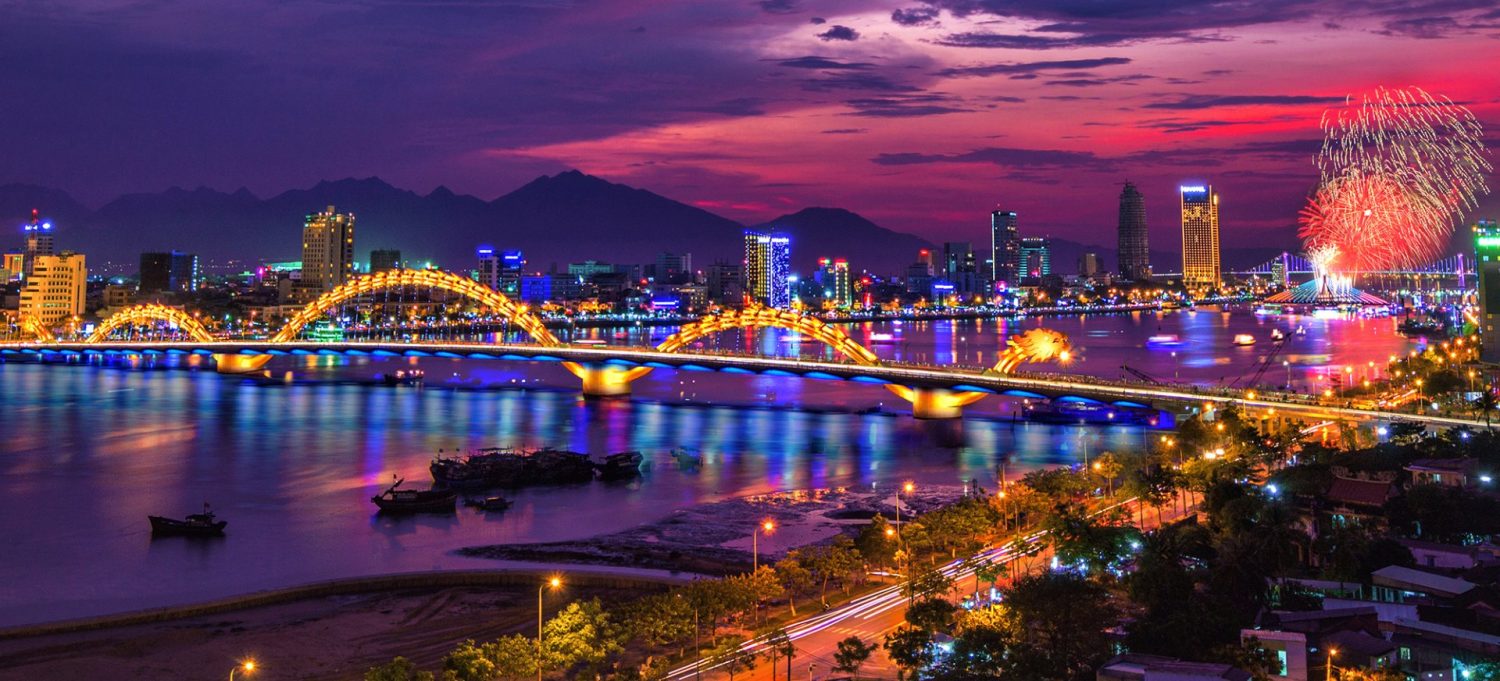VIETNAM FESTIVAL: TOP 8 FAMOUS FESTIVALS
Vietnam festivals are an important part of the national culture, attracting millions of tourists annually. With their diversity and richness, festivals take place throughout the year, from North to South, imbued with each region’s traditions and unique identities. Through festivals, visitors not only immerse themselves in the joyful and vibrant atmosphere but also learn more about the spiritual life and customs of the Vietnamese people. Festivals in Vietnam are an occasion for entertainment and an opportunity to learn about and appreciate the unique national identity, creating a special attraction for Vietnamese cultural tourism.
Table of contents
- 1. Tet Nguyen Dan – A traditional and important festival
- 2. Mid-Autumn Festival in Vietnam
- 3. Hoi An Lantern Festival – Unique festival in Vietnam
- 4. Hue Vietnam Festival – A celebration of culture
- 5. Reunification Day – A national festival in Vietnam
- 6. Hung King Temple Vietnam Festival
- 7. Perfume Pagoda Festival – One of the most famous Vietnam festival
- 8. Vietnam National Day
1. Tet Nguyen Dan – A traditional and important festival
Tet Nguyen Dan is the most important Vietnam festival of the year for Vietnamese people, taking place on the first day of the Lunar New Year, usually in late January or early February. This is an occasion for people to gather, rest and welcome the new year in a warm and solemn atmosphere.
During Tet, people participate in many traditional activities such as cleaning, decorating their houses with peach and apricot blossoms and red parallel sentences to welcome fortune. Before Tet, families are often busy preparing offerings to their ancestors, expressing gratitude and praying for peace and luck for the whole year. Folk games, fireworks, and visiting and wishing relatives and friends a happy new year are indispensable activities.
Tet dishes have special meanings, typically banh chung and banh tet, symbolizing heaven and earth and abundance. In addition, Tet meals also include dishes such as pork roll, boiled chicken, pickled onions, bamboo shoot soup, and many types of fruit jam. These dishes are not only delicious but also show respect for national traditions and culture.
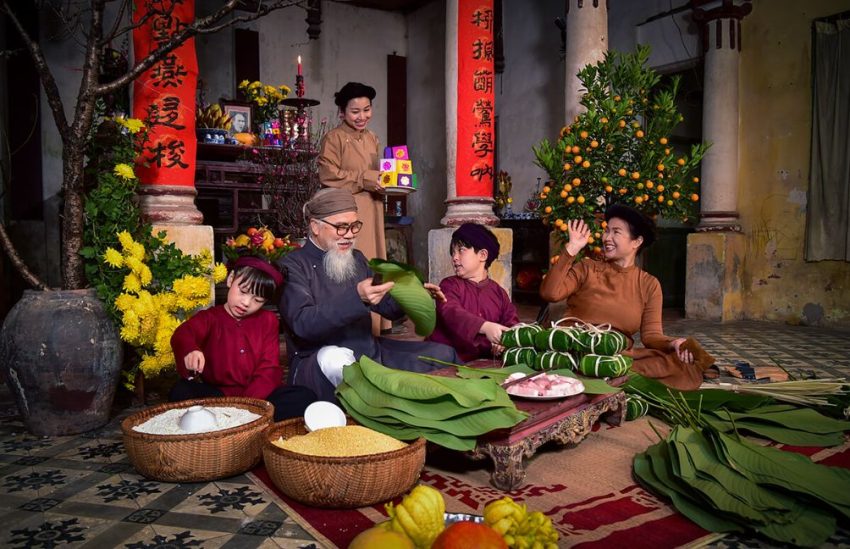
2. Mid-Autumn Festival in Vietnam
The Mid-Autumn Festival in Vietnam, also known as the Mid-Autumn Festival is one of the most special events in the series of Vietnam festivals, taking place on the 15th day of the 8th lunar month. This is the time when the full moon is the brightest of the year, and it is also the time when people organize special activities. Children eagerly prepare lanterns, participate in parades with colorful lanterns, and enjoy traditional cakes. This is an opportunity for people, especially children, to immerse themselves in the joyful and vibrant atmosphere of the festival.
One of the main activities of the Mid-Autumn Festival is organizing lantern competitions, where children show off their homemade or purchased lanterns, with many different shapes and colors. Lantern parades often take place in many neighborhoods and parks, creating a bustling, colorful atmosphere. An indispensable dish in the Mid-Autumn Festival is moon cakes. There are many types of mooncakes, but the most popular are sticky rice cakes and baked cakes. Sticky rice cakes are usually filled with green beans, lotus seeds, and have a soft crust, while baked cakes have a crispier crust with fillings such as mixed beans, red beans, or green beans.
The Mid-Autumn Festival is not only a time for fun, but also has a deep meaning in Vietnamese culture. This is the time when people reunite, enjoy the beauty of the full moon and show hospitality to friends and relatives. In particular, the Mid-Autumn Festival is also an opportunity for parents to spend time with their children, helping them understand the national cultural traditions and create memorable memories.
The Mid-Autumn Festival is an indispensable part of the Vietnamese festival chain, bringing joy and connection to everyone, while preserving and promoting traditional cultural values.
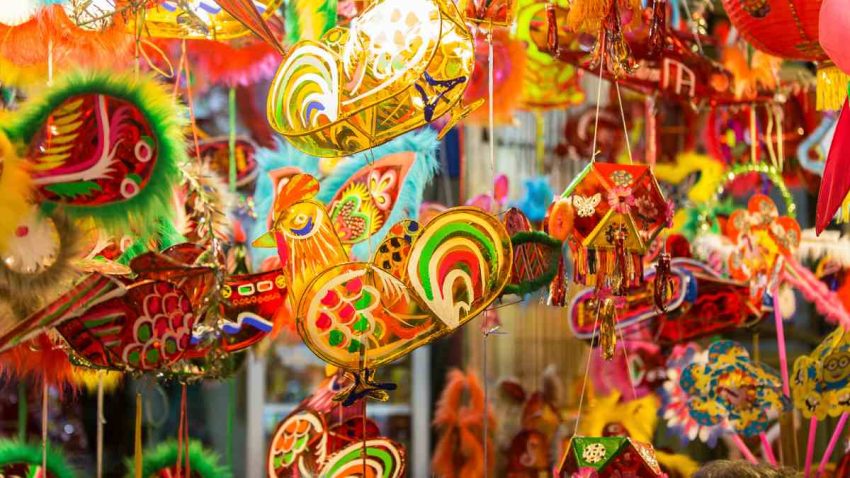
3. Hoi An Lantern Festival – Unique festival in Vietnam
The Hoi An Lantern Festival is one of the most unique festivals in the series of Vietnam festivals, attracting the attention of tourists from all over. Taking place on the full moon day of every month, especially on Lunar New Year and major holidays, this festival turns Hoi An ancient town into a sea of brilliant lights.
The Hoi An Lantern Festival usually takes place on the 14th day of the lunar month, when the full moon is at its brightest. On these days, the entire Hoi An ancient town becomes sparkling with thousands of lanterns of all colors and shapes. The streets, alleys, and shops are all decorated with lanterns, creating a mysterious and attractive space.
The main activities of the festival include releasing paper lanterns into the Hoai River, performing folk games, and enjoying Hoi An specialties. Visitors have the opportunity to participate in traditional activities such as making lanterns, visiting handicraft shops, and enjoying unique street foods.
The lantern festival in Hoi An is not only an opportunity to admire the beauty of light, but also has a profound meaning in Vietnamese culture. Lanterns symbolize light, luck and warmth in life. Releasing lanterns on the Hoai River not only creates a beautiful scene but also carries the meaning of wishing for good things and happiness in the new year.
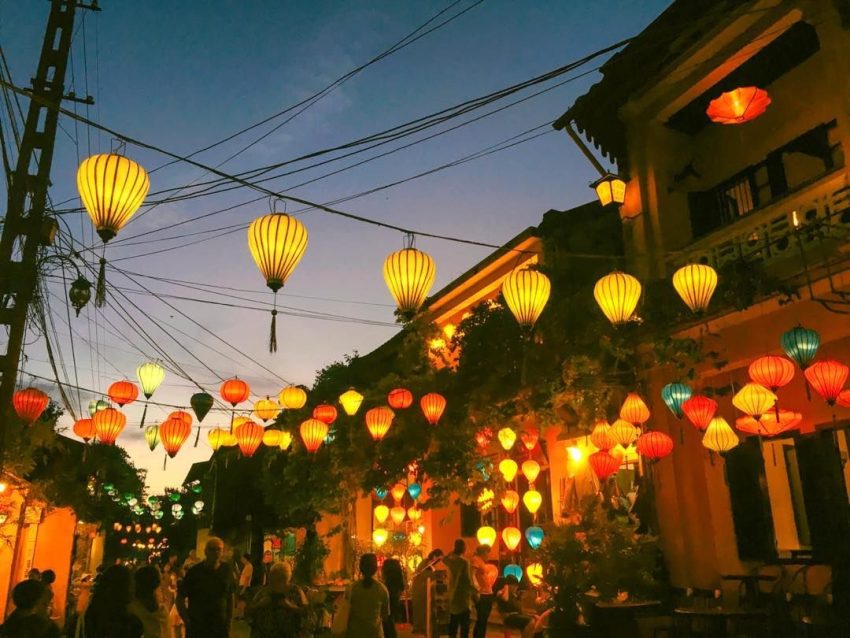
4. Hue Vietnam Festival – A celebration of culture
Hue Festival, also known as Hue Festival, is one of the largest and most unique cultural festivals in the series of Vietnam festivals. Taking place every two years, Hue Festival honors the cultural and historical heritage of this ancient city, along with a combination of many traditional art activities and festivals.
Hue Festival is usually held in April or May, lasting about a week. This event attracts millions of domestic and foreign tourists to participate and experience the unique culture and art of Hue. The festival is not only an occasion to celebrate the cultural heritage of the ancient capital but also an opportunity for international cultural exchange.

The main activities in Hue Festival include:
- Street parade: Art troupes from within and outside the country participate in the parade, performing lion dances, drums, and traditional and modern art performances.
- Concerts and art performances: Music, dance, and drama programs are held at many locations in the city, including ancient palaces and temples.
- Cultural and historical exhibitions: Exhibitions on cultural heritage, handicrafts, and traditional cuisine of Hue and other regions in the country and internationally.
- Traditional festivals: Including royal ceremonies, street festivals, and folk games, such as wrestling, archery, and other traditional games.
The Hue Festival is not only a major cultural event but also an opportunity to preserve and promote the cultural heritage of Hue city. The festival honors the unique historical and cultural values of the ancient capital, from historical relics, royal architecture to traditional customs and practices. Hue Festival is one of the outstanding events in the series of Vietnamese festivals, offering visitors a rich cultural experience, along with the opportunity to deeply learn about the history and culture of Hue city.
5. Reunification Day – A national festival in Vietnam
Reunification Day, known as, is a national holiday in Vietnam celebrated annually on April 30. It marks the fall of Saigon in 1975, which ended the Vietnam War and led to the reunification of North and South Vietnam.
This day is deeply significant to the Vietnamese people as it commemorates the victory of the North Vietnamese forces over the South Vietnamese regime, symbolizing the end of decades of conflict and colonial rule. Reunification Day is a time to honor the sacrifices made for national unity and independence.
Festivities include parades, fireworks, and cultural performances across major cities like Hanoi and Ho Chi Minh City. The capital, Hanoi, typically holds ceremonies in Ba Dinh Square, while Ho Chi Minh City, once Saigon, hosts large-scale celebrations with military parades, concerts, and reenactments of historical events. The day is often paired with International Workers’ Day on May 1, creating a long holiday period for people to travel and celebrate with family.
Reunification Day is a reminder of Vietnam’s resilience and the long journey towards peace and unity.

6. Hung King Temple Vietnam Festival
Hung Temple Festival, also known as Hung Kings’ Commemoration Day, is one of the most important festivals of the Vietnamese people, taking place on the 10th day of the third lunar month every year in Phu Tho. The festival aims to commemorate and pay tribute to the Hung Kings, who built and defended the country, while also honoring the tradition of patriotism and national solidarity.
The festival usually begins from the 6th to the 10th day of the third lunar month, including both the ceremony and the festival. The ceremony includes solemn worship rituals at Hung Temple and localities across the country, while the festival includes cultural activities, sports, art performances and folk games such as tug of war, boat racing, and xoan singing. The Hung Temple Festival was recognized by UNESCO as an Intangible Cultural Heritage of Humanity in 2012.
This is not only an occasion for Vietnamese people to return to their roots, but also an important event that attracts millions of domestic and foreign tourists to attend.
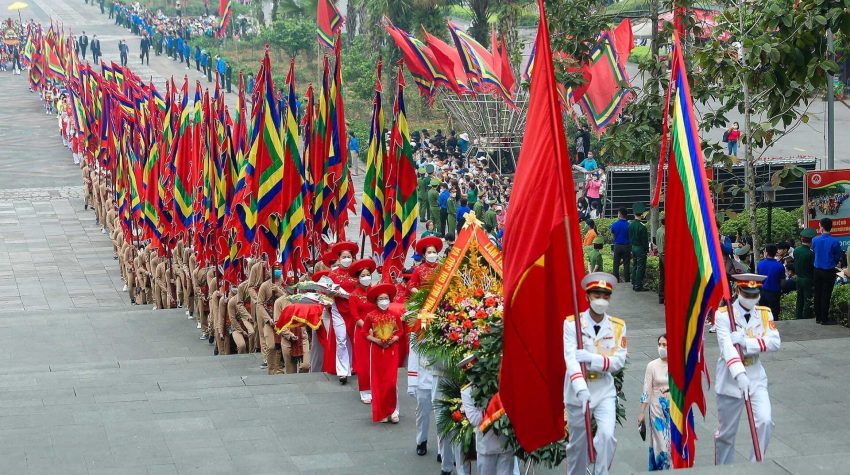
7. Perfume Pagoda Festival – One of the most famous Vietnam festival
The Perfume Pagoda Festival is one of the largest and longest festivals in Vietnam, taking place from the 6th of January to the end of the 3rd lunar month in Huong Son commune, My Duc district, Hanoi. The festival is an opportunity for visitors from all over to join the spring journey, pray for luck, peace, and explore the majestic natural beauty of the Perfume Pagoda complex.
The Perfume Pagoda Festival consists of two main parts: the ceremony and the festival. The ceremony includes spiritual rituals, worship, and prayers for blessings at temples, pagodas, and caves in the area, the most famous of which are Thien Tru Pagoda and Huong Tich Cave. The festival includes cultural and artistic activities, and boat trips on the poetic Yen stream, where visitors can enjoy the beautiful natural scenery amidst the mountains.
The festival attracts millions of participants each year not only for its spiritual elements, but also for its unique journey of discovering nature. In particular, Huong Tich Cave, known as “The most beautiful cave in the South,” is a prominent destination with a fascinating natural stalactite system.
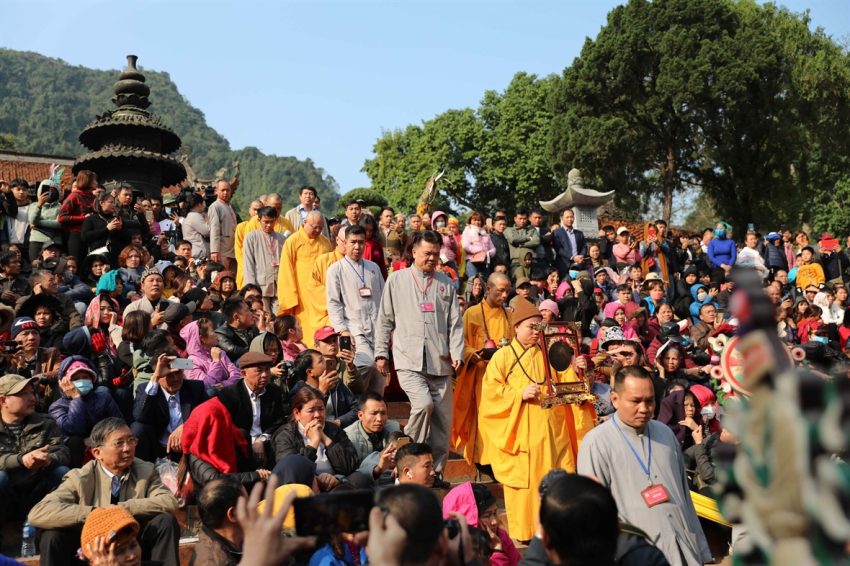
8. Vietnam National Day
National Day September 2 is the biggest and most important holiday of the year in Vietnam, commemorating the day President Ho Chi Minh read the Declaration of Independence at Ba Dinh Square, Hanoi, on September 2, 1945, giving birth to the Democratic Republic of Vietnam, now the Socialist Republic of Vietnam. This day marks the end of colonial and feudal rule, opening a new era for the country’s independence and freedom.
Every year, on the occasion of National Day, people across the country organize solemn and vibrant celebrations. In Hanoi, there are parades and military parades at Ba Dinh Square, where Uncle Ho declared independence. Throughout the country, red flags with yellow stars are hung everywhere, cultural and artistic activities, and fireworks displays are held to celebrate this important holiday.
National Day is not only an occasion to commemorate the great contributions of heroes and martyrs who sacrificed for national independence, but also a time for Vietnamese people to express their patriotism, national pride, and look forward to a prosperous future.
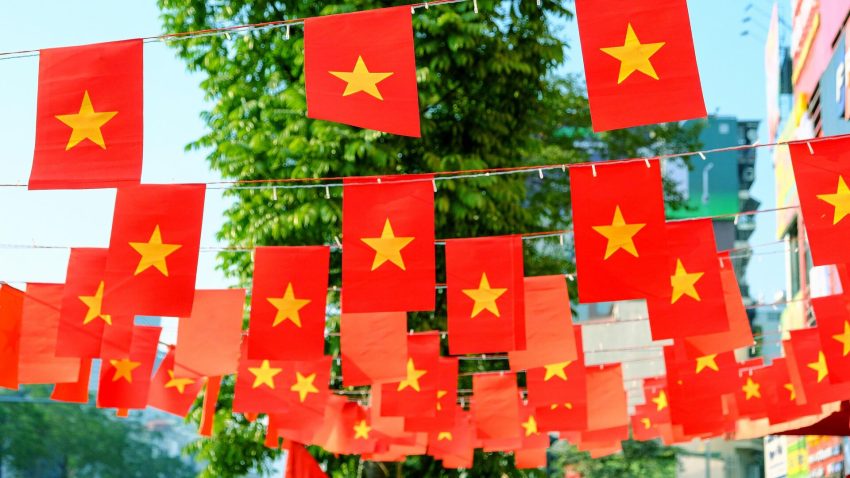
The famous traditional festivals in Vietnam are not only an opportunity for people to remember their roots and pay tribute to their ancestors, but also an opportunity for tourists to experience the unique culture of each region. Participating in these festivals, you will not only feel the sacred atmosphere but also discover the diverse cultural beauty of the country. If you have the opportunity to visit Vietnam, do not miss the opportunity to immerse yourself in these special events to learn more about the people and history of a country rich in tradition.


